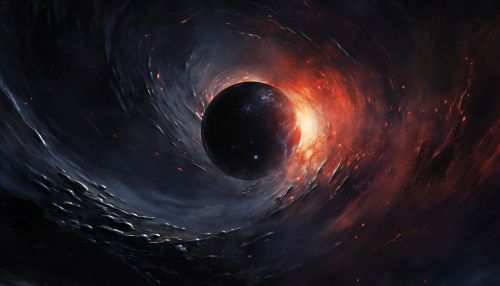Advances in Understanding the Thermodynamics of Black Holes
Introduction
The study of black holes has been a significant area of focus within the field of astrophysics for several decades. Black holes, regions of spacetime exhibiting gravitational acceleration so strong that nothing can escape from it, are intriguing due to their extreme properties and the implications they have on our understanding of the universe. One of the most fascinating aspects of black holes is their thermodynamic behavior. This article will delve into the advances in understanding the thermodynamics of black holes, discussing the key concepts, theories, and breakthroughs in this field.


Black Hole Thermodynamics
The thermodynamics of black holes is a subject that combines principles of quantum mechanics, general relativity, and thermodynamics. The field was pioneered by physicists like Stephen Hawking and Jacob Bekenstein, who proposed the laws of black hole thermodynamics, drawing parallels between black hole dynamics and the laws of thermodynamics.
Laws of Black Hole Thermodynamics
The laws of black hole thermodynamics are a set of four laws that describe the behavior of black holes in a thermodynamic context. These laws draw a parallel to the four laws of classical thermodynamics, and they are:
- The Zeroth Law: The surface gravity of a stationary black hole is constant across the event horizon.
- The First Law: The change in energy (mass) of a black hole is equal to the surface gravity times the change in area of the event horizon, plus the work done on the system.
- The Second Law: The total area of the event horizons of any collection of black holes can never decrease.
- The Third Law: It is impossible to form a black hole with zero surface gravity.
These laws, while seemingly abstract, have profound implications on our understanding of black holes and the universe.
Black Hole Entropy and Hawking Radiation
One of the most significant breakthroughs in black hole thermodynamics is the concept of black hole entropy. Bekenstein proposed that a black hole's entropy is proportional to the area of its event horizon. This was a radical idea, as it suggested that black holes are not just simple gravitational objects, but thermodynamic ones with temperature and entropy.
Following Bekenstein's proposal, Hawking discovered that black holes can emit thermal radiation, now known as Hawking radiation. This was a groundbreaking discovery, as it implied that black holes are not entirely black, but rather, they emit particles and can eventually evaporate over time. This discovery also confirmed Bekenstein's proposal, as it showed that black holes have a temperature, further solidifying the thermodynamic nature of black holes.
Advances in Understanding Black Hole Thermodynamics
Over the years, there have been several advances in understanding the thermodynamics of black holes. These advances have not only deepened our understanding of black holes but also have implications on quantum gravity, a theory that seeks to reconcile quantum mechanics and general relativity.
Black Hole Information Paradox and Firewall Paradox
One of the most profound implications of Hawking radiation is the black hole information paradox. This paradox arises from the fact that the process of Hawking radiation appears to destroy information, which contradicts the principles of quantum mechanics that information is never lost. This paradox has been a subject of intense debate and research.
A proposed resolution to the information paradox is the firewall paradox. The firewall argument suggests that a highly energetic "firewall" exists at the event horizon of a black hole, which destroys any information falling into the black hole. However, this contradicts the equivalence principle of general relativity. The firewall paradox and the information paradox are still unresolved issues, and resolving them could lead to a better understanding of black hole thermodynamics and quantum gravity.
Thermodynamics of Spinning Black Holes
Another advance in the field is the study of the thermodynamics of spinning, or Kerr, black holes. Kerr black holes are unique as they have angular momentum, which adds another layer of complexity to their thermodynamics. Understanding the thermodynamics of Kerr black holes could provide insights into the behavior of rotating black holes and their interactions with their surroundings.
Conclusion
The study of black hole thermodynamics has significantly advanced our understanding of black holes and the universe. From the laws of black hole thermodynamics to the concept of black hole entropy and Hawking radiation, these advances have deepened our understanding of these fascinating objects. However, there are still many unresolved issues, such as the information paradox and the firewall paradox, which continue to be subjects of intense research. The resolution of these paradoxes could lead to a better understanding of black hole thermodynamics and potentially pave the way for a unified theory of quantum gravity.
